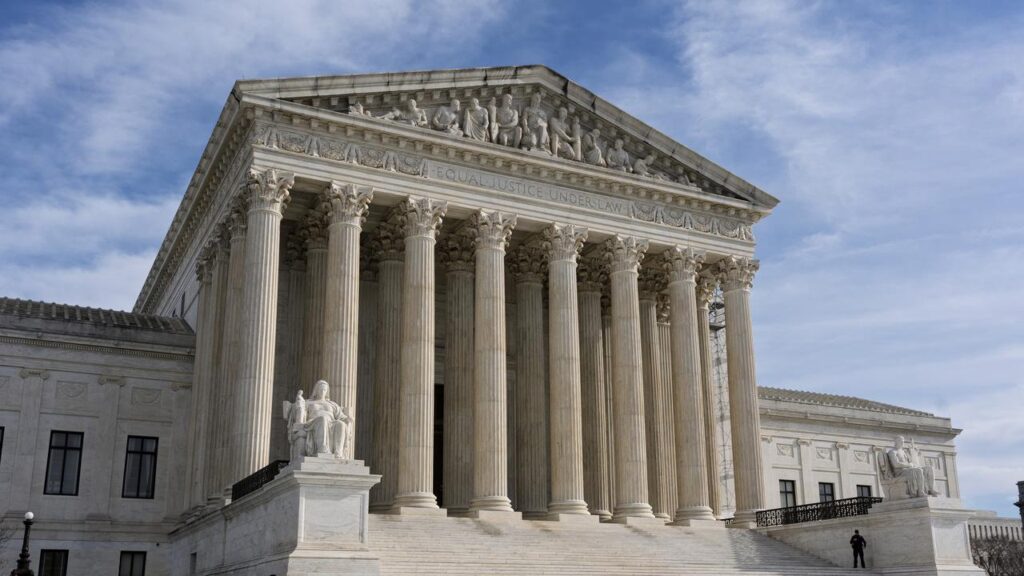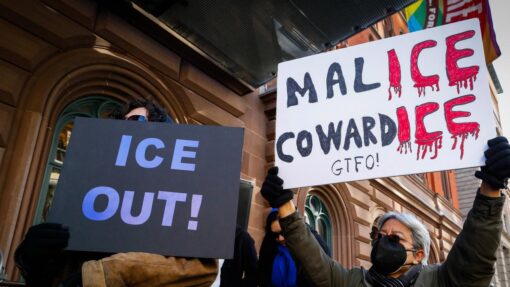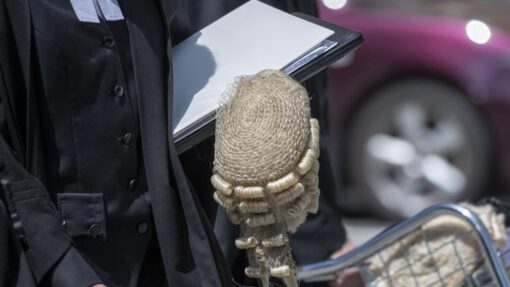Top court limits judges’ powers on US-wide injunctions
|

The United States Supreme Court has ruled that individual federal judges lack the authority to grant country-wide injunctions – but the decision leaves unclear the fate of US President Donald Trump’s restrictions on birthright citizenship.
The ruling deals a blow to the power of judges by restricting their ability to grant broad legal relief in cases as the justices acted in a legal fight over Trump’s bid to limit birthright citizenship, ordering lower courts that blocked the policy to reconsider the scope of their orders.
However, the court’s 6-3 ruling authored by conservative Justice Amy Coney Barrett did not let Trump’s policy go into effect immediately and did not address the policy’s legality.
The justices granted a request by Trump’s administration to narrow the scope of three country-wide injunctions issued by federal judges in the states of Maryland, Massachusetts and Washington that halted enforcement of his directive while litigation challenging the policy plays out.
With the court’s conservatives in the majority and its progressives dissenting, the ruling specified that Trump’s executive order cannot take effect until 30 days after Friday’s ruling.

“No one disputes that the Executive has a duty to follow the law. But the Judiciary does not have unbridled authority to enforce this obligation – in fact, sometimes the law prohibits the Judiciary from doing so,” Barrett wrote.
Justice Sonia Sotomayor, in a dissent joined by the court’s other two progressive members, wrote, “The majority ignores entirely whether the President’s executive order is constitutional, instead focusing only on the question whether federal courts have the equitable authority to issue universal injunctions. Yet the order’s patent unlawfulness reveals the gravity of the majority’s error and underscores why equity supports universal injunctions as appropriate remedies in this kind of case.”
Trump welcomed the ruling in a social media post.
“GIANT WIN in the United States Supreme Court,” Trump wrote on Truth Social.
On his first day back in office, Trump signed an executive order directing federal agencies to refuse to recognise the citizenship of children born in the United States who do not have at least one parent who is a US citizen or lawful permanent resident, also called a “green card” holder.
More than 150,000 newborns would be denied citizenship annually under Trump’s directive, according to the plaintiffs who challenged it, including the Democratic attorneys general of 22 states as well as immigrant rights advocates and pregnant immigrants.
The case before the Supreme Court was unusual in that the administration used it to argue that federal judges lack the authority to issue US-wide, or “universal,” injunctions and asked the justices to rule that way and enforce the president’s directive even without weighing its legal merits.
In her dissent, Sotomayor said Trump’s executive order is unconstitutional.
So rather than defend it on the merits, she wrote, the Justice Department “asks this Court to hold that, no matter how illegal a law or policy, courts can never simply tell the Executive to stop enforcing it against anyone.”
“The gamesmanship in this request is apparent and the Government makes no attempt to hide it,” Sotomayor wrote.
“Yet, shamefully, this Court plays along.”
Birthright citizenship automatically makes anyone born in the United States a US citizen, including children born to mothers in the country illegally.
The right was enshrined soon after the civil war in the constitution’s 14th amendment.
with AP
Reuters


